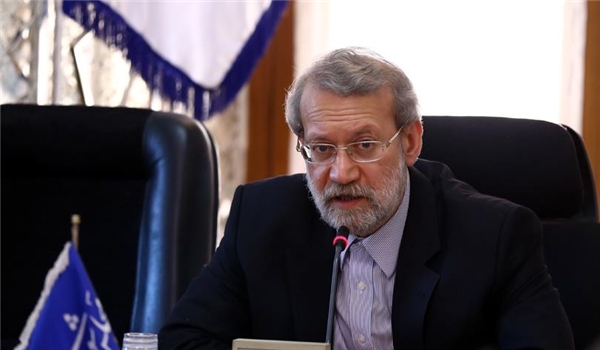
RNA - Iran has no diplomatic ties with the US, Larijani said, adding that having relations with the US may be significant for certain countries but it is not important to Iran.
He made the comments in an interview with China's to Phoenix TV.
Asked about Iran's assessment of US President-elect Donald Trump's future plans in relations with other countries, Larijani said, "At present, we have no judgment over US president-elect Trump because he has raised issues during his electoral campaign which will usually differ from presidency era."
"We have no opinion in this respect as we should wait to see what he will do in practice," he said.
In relevant remarks last month, Supreme Leader of the Islamic Revolution Ayatollah Seyed Ali Khamenei said Iran's decisions are not affected by elections results in the US, underlining that Washington's policies on Iran have always remained hostile irrespective of partisan affiliations.
"We don’t have any judgment about the (US) election since the US is the same US and during the past 37 years that the two parties held the power, they didn’t do any good to Iran and they permanently did evil things to the Iranian nation," Ayatollah Khamenei said in Tehran, addressing a large gathering of the Iranian people from the Central province of Isfahan.
“Unlike some of those in the world who have either been mourning or celebrating the results of the US elections, we are neither mourning nor celebrating, and the results make no difference to us. We have no worries and by the grace of God, we are ready to face any possible eventuality,” he added.
Ayatollah Khamenei said that Iran should focus on resolving its present and future problems by enhancing national and intrinsic power.
Elsewhere, he referred to the issues raised by the US presidential candidates during their election campaigns, including poverty and other problems, and said, "In recent years, the US has spent the American people's money in dishonorable wars whose result has been the massacre of tens of thousands of civilians and destruction of infrastructures in Afghanistan, Iraq, Libya, Syria and Yemen."
847/940